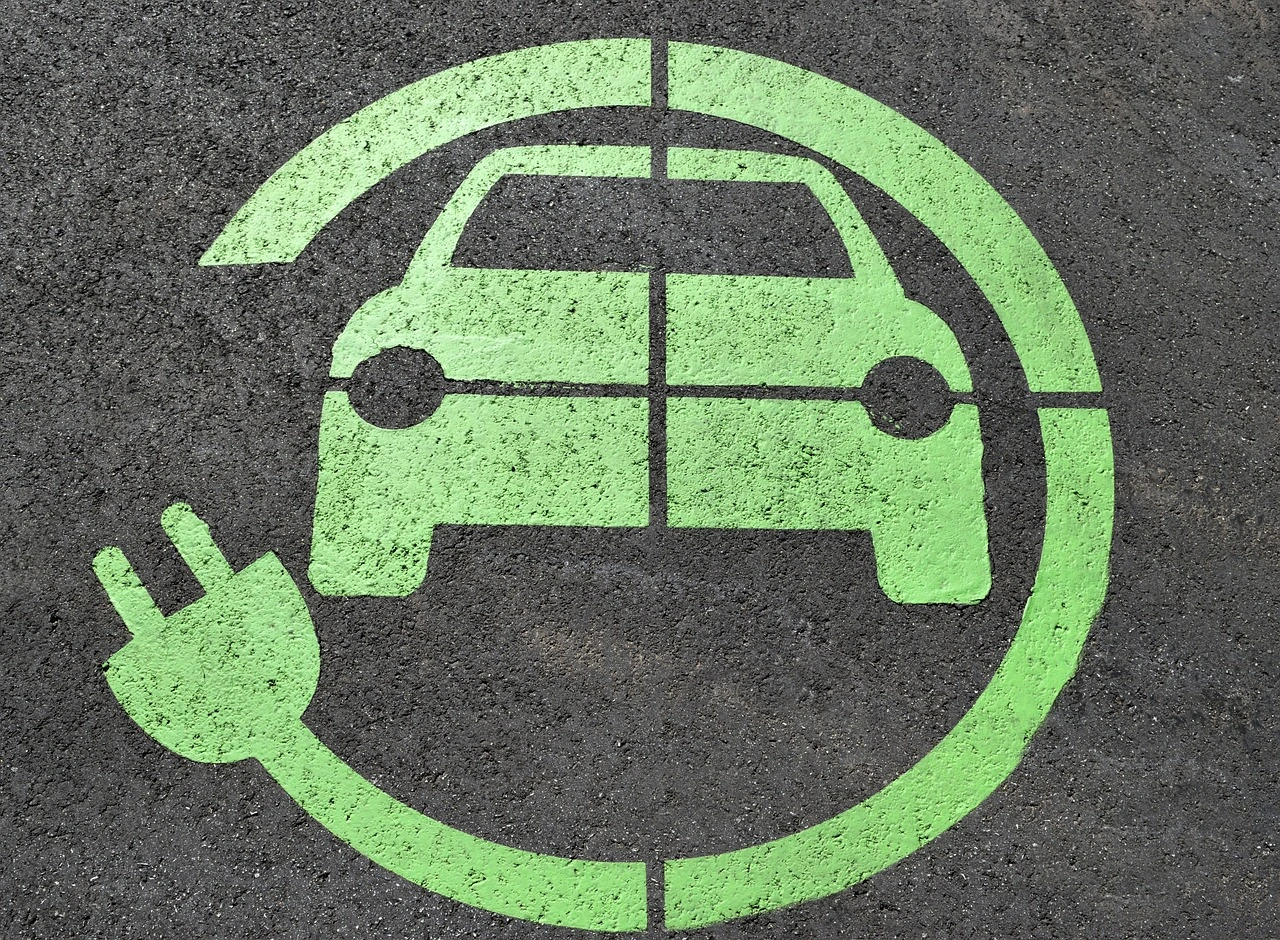At Unimi, we strive to provide you with the most detailed and comprehensive information on electric vehicle (EV) charging stations.
Commercial EV Charging Stations
Commercial EV charging solutions, on the other hand, are designed for public and commercial use, catering to a broader audience of electric vehicle users.
These stations are strategically placed in high-traffic areas, such as shopping malls, office complexes, and public parking lots or in connections to businesses that’s supporting its employees choice in switching from fossil fuel to EV.
Let’s explore the key aspects of commercial charging stations:
Power Output and Charging Speeds
Let’s begin with power output. The power output of a charging station refers to the amount of power it can deliver to the EV. Most public charging stations come in three levels, with level 1 having the lowest power output and level 3 having the highest and we need to understand the difference between these.
The power outputs for level 1 and 2 stations range from 1.4 kW to 19 kW, while level 3, also known as DC fast charging, can range output power anywhere from 25 kW to 350 kW or more. It is essential to note that charging stations with higher power outputs are generally more expensive.
Now, let’s move on to charging speeds. Charging speed is the rate at which the EV battery can be charged. Several factors impact the charging speed, such as the car’s battery size, charging station power output, and the type of electric current (AC or DC) the station uses.
Level 1 and 2 charging stations typically use AC power, while level 3 stations use DC power. With AC charging, the charging speed is usually slower compared to DC charging. However, DC charging can charge an EV battery from 0 to 80% in under 30 minutes, making them ideal for long journeys.
While level 1 and 2 charging stations are sufficient for short-term charges, level 3 charging stations are becoming increasingly popular, mainly due to their fast charging speeds.
With level 3 stations, EV users can add approximately 75 miles to their EV’s range in just ten minutes. Thus, they are ideal for busy locations, such as highways or shopping malls, where EV users need to charge their vehicles quickly.
Another thing to keep in mind is that EVs may have different charging capabilities, which depend on the car model and battery size.
For instance, a Tesla Model S can charge at a rate of up to 250 kW, while a Nissan Leaf can only handle up to 50 kW. It is essential to note your EV’s charging capabilities to optimize the charging speed without damaging the battery.
Installation and Cost
The cost of a complete commercial charging station installation can range from $7,000 to upwards of $100,000 depending on several factors. These may include facility location, the number of charging points, required power supply, and parking space availability.
Furthermore, the cost of installation may be influenced by the electrical upgrade required for the installation and the fees charged by the utility company. It is recommended to gather quotes from multiple service providers and utility companies to compare pricing and service offerings.
Maintenance and Service
Maintenance and service for a commercial EV charging station are just as important as the installation process. You need to ensure that your charging stations are regularly maintained and serviced to maintain its efficiency and safety.
It is best for commercial customers to partner with a reliable service provider that provides on-time maintenance and repair services.
Payment Options
Commercial EV charging stations offer a variety of payment options, including credit cards, mobile apps, or radio frequency identification (RFID) cards. Credit card payment is a popular option for most users, as it is easy to use and widely accepted.
Mobile apps provide a convenient way for EV owners to locate and pay for charging stations using their smartphones. RFID cards offer a contactless payment method, which can be useful for users who prefer not to use cash or credit cards.
Accessibility Options
Commercial charging stations are usually open 24/7, making it easy for EV owners to charge their vehicles at any time. This means that stations need to be easily accessible, and conveniently located in areas where EVs are likely to be, such as shopping centers, supermarkets, and gas stations.
The location of charging stations is critical to ensuring that EV owners can easily access them. Investing in strategically placed charging stations allows for better user experience, happy customers, and repeat business for business owners.
Compatibility is key
The main purpose of commercial EV charging stations is to provide a convenient charging solution for electric vehicle owners. Therefore, it’s vital that they are compatible with most, if not all, electric vehicles.
Multi-vehicle compatibility allows drivers to recharge their vehicles no matter what make or model they own. This is especially important for businesses that operate commercial charging stations, as they don’t want to exclude potential customers because of compatibility issues.
The role of standardized charging connectors
To ensure multi-vehicle compatibility, EV manufacturers have agreed on certain standards for charging connectors. The most widely used connector in Europe is the Type 2 connector for AC and the CCS – Type 2 for DC charging, which is used by most electric vehicles in Europe.
This standardization ensures that most public EV charging stations are equipped to charge electric vehicles from different manufacturers, as long as they have the correct connector.
Compatibility challenges still exist
Although standardized connectors have helped to improve compatibility between commercial EV charging stations and electric vehicles, challenges still exist. Some newer EV models have different charging connectors or require a higher charging rate than what is currently available on most charging stations.
Therefore, commercial charging station owners need to ensure that their equipment is regularly upgraded to meet these new demands.
Benefits to businesses
Multi-vehicle compatibility not only benefits electric vehicle owners but also businesses. By providing an inclusive charging solution, businesses can attract a wider range of customers, increasing foot traffic and customer loyalty.
Moreover, businesses that operate charging stations can partner with EV manufacturers to get local incentives and provide marketing and branding opportunities. Overall, supporting the growth of electric vehicles can present more opportunities for businesses.
The future of multi-vehicle compatibility
As the number of electric vehicle models continues to grow, multi-vehicle compatibility will remain a priority for commercial EV charging station design. New charging standards are also being developed that aim to increase the charging speeds and improve compatibility with different types of electric vehicles.
Therefore, it’s important for businesses that operate commercial charging stations to stay up-to-date with new advancements in the field.
Residential EV Charging Stations
Residential EV charging stations are designed for personal use, specifically tailored to meet the needs of EV owners at their homes. These smart charging stations offer convenience, ease of use, and flexibility. Here are some key characteristics of residential EV charging stations:
Power Output and Charging Speeds
Residential EV charging stations are typically rated at either 120V or 240V, with charging speeds that range from 3 to 20 miles of range per hour. These charging stations are often designed for overnight charging, providing enough power to fully charge most EVs within 8 to 12 hours. However, this slower charging speed may not be adequate for those who require quick top-ups throughout the day.
One way that EV owners can increase the charging speed of their residential charging station is to upgrade to a higher voltage rating. A 240V charging station will offer faster charging speeds than a 120V station, providing up to 20 miles of range per hour of charging time. This can reduce the time required to charge an EV substantially and make it more convenient to top-up during the day.
It is also important to note that the charging speed of residential EV charging stations may be impacted by other factors, such as ambient temperature and the presence of other appliances or electrical systems in the home. For example, charging an EV during peak hours when other household appliances are in use may result in a slower charging speed due to increased energy demand on the electrical system.
Installation and Cost
Installation Process
If you’re considering a plug-and-play model, the installation process is relatively simple and can be done by most EV owners by connecting the charging station to a standard electrical outlet. However, if you want faster charging speeds and dedicated installations, professional electricians might be required.
Professional electricians ensure that the installation of electric vehicle supply equipment meets all the necessary safety standards and is done correctly. They also help with site planning, permits, and electrical assessments to ensure that your EV charging station works seamlessly.
Cost of Installation
The cost of installing a residential EV charging station depends on several factors, such as the model, the installation location, and whether you require professional help or not. If you choose a plug-and-play model, the cost of installation can be as low as a few hundred dollars.
However, if you want a dedicated installation, the cost may be higher. It is essential to consider the cost of electrical services, site preparation, and permits when budgeting for installation costs. In general, residential EV charging stations are more affordable than commercial ones, and the cost varies depending on your needs and your location.
Home Integration and User-Friendly Features
Convenience of Home Integration
Home integration is a crucial feature for EV owners, as it eliminates the need to visit public charging stations. Charging at home allows EV owners to quickly and efficiently charge their vehicles overnight, without having to worry about locating and accessing public stations.
A benefit of home integration is that many of the models have mobile apps and Wi-Fi connectivity, which allows EV owners to monitor and manage their charging remotely. This technology makes it easier than ever before to manage your electric vehicle charging needs right from the comfort of your own home.
Importance of User-Friendly Features
User-friendly features are designed to remove barriers for EV owners in order to make charging more convenient and efficient. Some of these features include scheduling charging sessions, setting charging limits, and tracking energy consumption.
Scheduling charging sessions permits EV drivers to charge their vehicle during off-peak hours, when electricity rates are typically lower. This feature can save drivers money on peak energy usage and help to minimize strain on the electrical grid during peak hours.
Additionally, setting charging limits ensures that the vehicle stops charging once it reaches a certain percentage, enabling EV owners to budget their energy usage better.
Increased Compatibility With Smart Home Systems
EV charging stations are increasingly becoming compatible with smart home systems, allowing homeowners to integrate their EV charging with other systems in their homes. Smart home systems have become increasingly popular in recent years, and are known for their ability to manage and automate many aspects of daily life.
With the ability to integrate EV charging with these systems, homeowners can set up their smart charging station to work in conjunction with other devices in their homes.
Ease of Use for Business Owners
User-friendly features are not only beneficial to individual EV owners but also to business owners who install EV charging stations on their property. These features simplify managing charging stations, which can quickly become a complex and overwhelming process. For example, setting up charging limits and a schedule can reduce the risk of overcharging and help ensure that energy consumption is consistent.
Future Trends in EV Charging
The future of the best EV charging solution will undoubtedly see further integration with smart home systems and technological advancements, particularly in terms of the accessibility and affordability of an EV charging solution.
The market trend is towards expanding accessibility, with more public charging stations and faster charging times. Additionally, there will be an increasing emphasis on affordability, with EV charging becoming more cost-effective.
Conclusion
In conclusion, electric vehicles are quickly becoming the preferred choice of those looking to reduce their emissions. As their popularity continues to increase, so does the need for efficient EV charging stations.
Providing ample and innovative charging solutions is key, as is having the ability to easily pay through various payment options. Compatibility is a must in order to support all kinds of EV’s available and both commercial and residential charging stations bring distinct advantages that impact user experience.
Residential chargers come with home integration capabilities and UX features such as preset timers or voice control integration, while commercial stations provide users managed access points, enhancing security, speedier charging times and better power output along with other extra services such as driver’s lounge or a cafe.
If you’re considering setting up an EV Charging Station at your business, contact us today so we can get started on providing you with the ideal solution.
Read more
Why maintenance for EV infrastructure fails
Understanding Different Types Of Ev Charging: Level 1, Level 2, And DC Fast Charging





